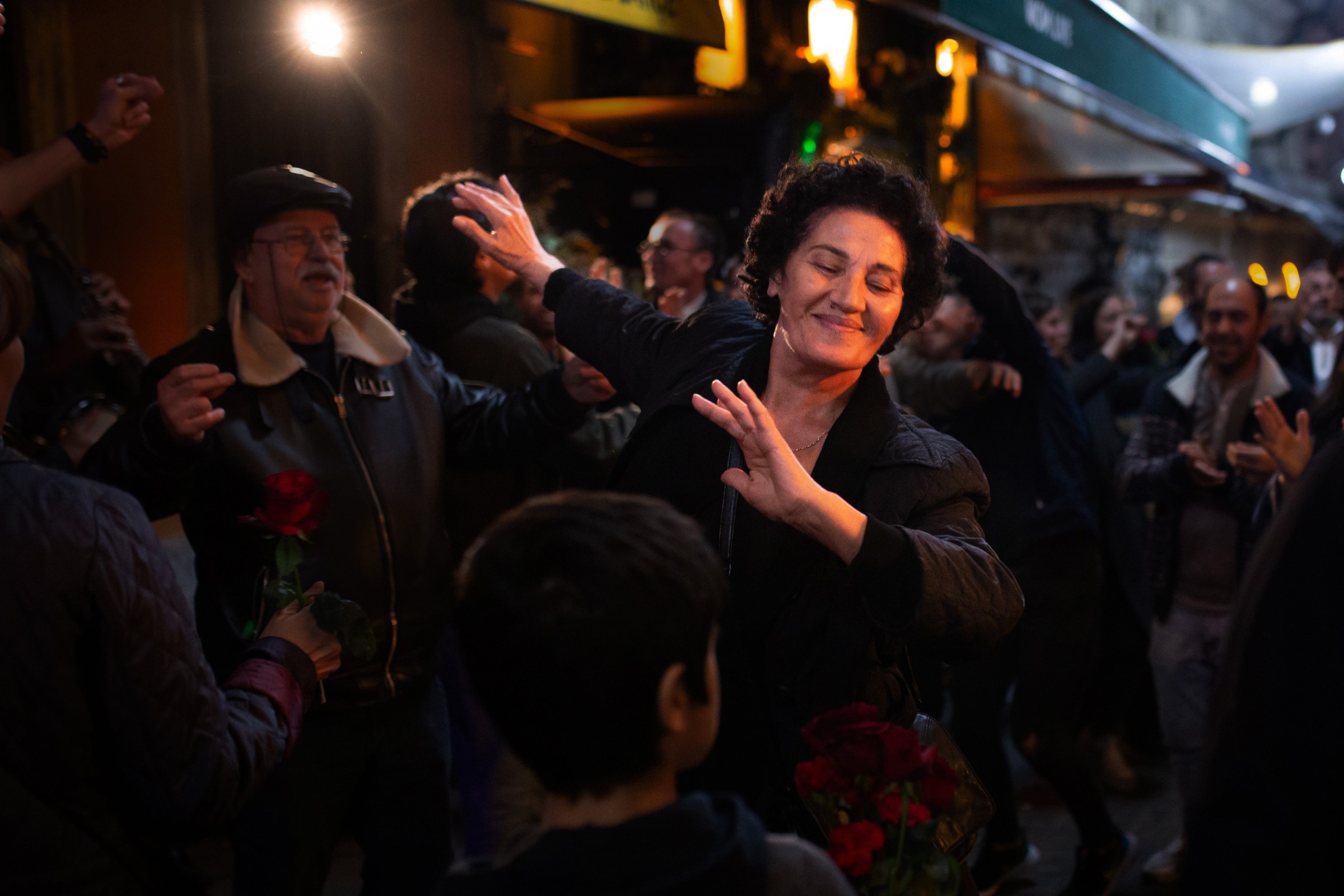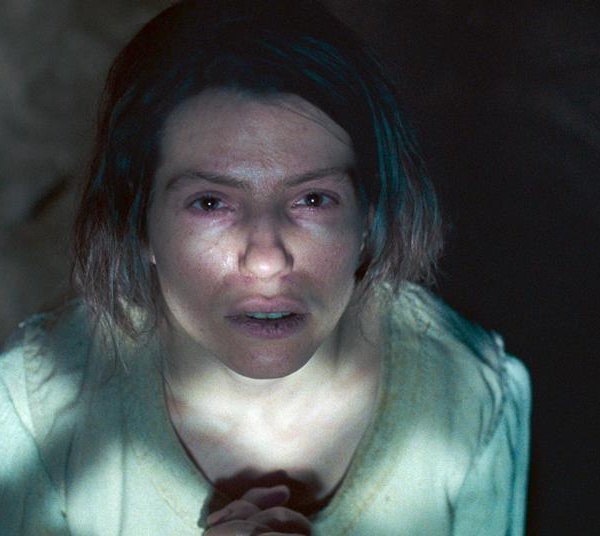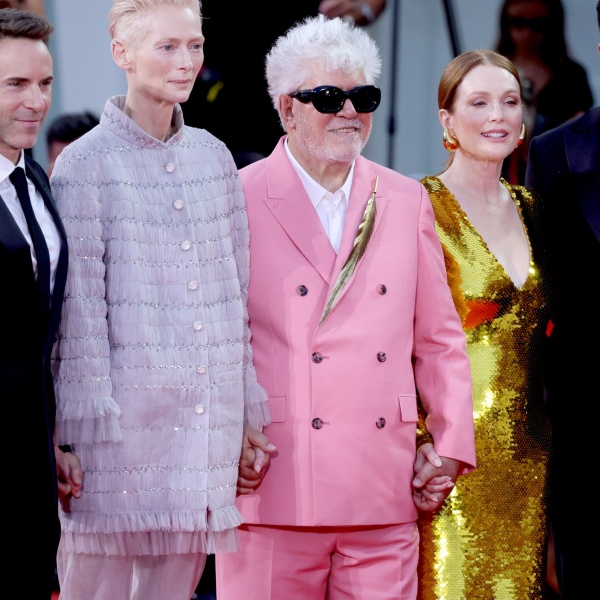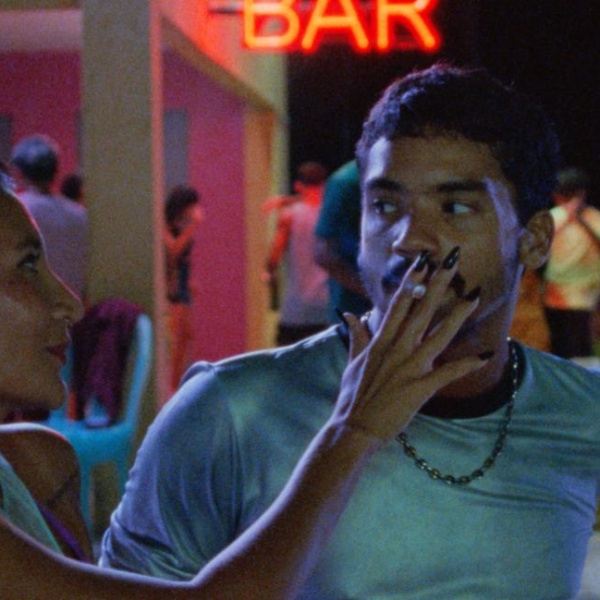In “Crossing,” the new film from “And Then We Danced” director Levan Akin, the earthy spirit of Italian icon Anna Magnani is channeled by not one but two actresses who resemble her. There’s Mzia Arabuli as Lia, a retired schoolteacher on a journey from Batumi in Georgia to Istanbul in Turkey to find her missing trans niece, and Deniz Dumanli as Evrim, the trans NGO lawyer the movie dupes us into thinking is Lia’s niece. The two women are as far apart on the joie de vivre spectrum as any pair could be — Lia has calcified into an emotionless stone who gives away nothing, while Evrim lives freely and sexually liberated in an otherwise LGBTQ-challenged country — yet “Crossing” movingly bridges the space between them as Lia gets closer to locating her niece with the help a Gen Z Georgian teenager named Achi (Lucas Kankava).
That these two women look so alike, Lia more raisined by time and disappointment and Evrim more vividly alive and fresh in her features, is a subtle trick director Akin is playing. Born in Sweden but of Georgian descent, and whose parents made Lia and Achi’s same journey over the Black Sea from Batumi to Istanbul, Akin previously conjured at least one of 21st century queer cinema’s most memorable images in 2019’s “And Then We Danced”: We see a Georgian dancer coming to understand he is gay, twirling out of repression, using Robyn’s pop track “Honey” as a kind of goofy seduction ploy on the other closeted dancer he is jealous of and in love with. Akin has again dreamed up an image seared in my brain in the final moments of “Crossing,” one wrought out of what initially feels like a “movie moment” reunion only to crystallize into a much more piercing portrait of forgiveness across generations. Which is what “Crossing” is all about.
As the feature both written and directed by Akin, his third, expands, it only become more impressively novelistic in scope, looking under unseen corners and pockets of Istanbul to celebrate its cast-asides or hideaways, from a community of spunky, spicy trans women living in what appears like a crumbling tenement on the outside but contains much private joy within, to the busking, bright-eyed children living on the city streets. The beginning of “Crossing” finds Lia trudging herself along the sea to prepare for the journey from Batumi, where she links up with Achi, who claims to know the address of her niece Tekla. How trustworthy Achi is emerges in blurrier dimensions, as it becomes clear the shit home life he’s trying to escape. The character of Achi is for certain meant to represent a particular generation of post-Soviet Georgians, while Lia is more bound to previously oppressive rule, a woman who subjugated herself to her profession and whose weary body and soul now embody that compromise.
Akin, for his part, pushes his characters well beyond serving as ideological stand-ins, especially as the film’s scope expands once Achi and Lia arrive in Istanbul. Turns out she’s a bit of a lush and much of a grouch, emotionally inert with gimlet eyes and a mouth that remains fixed in place like a grim line that tells of a lifetime’s resignations. Meanwhile, elsewhere in the city, Evrim is living it up, partying with friends and fucking a cute cabbie at night, and staggering to her NGO job by day having barely slept. Dumanli, making her screen feature debut here, is a pure joy to watch, enveloping the movie in a sense of warm coziness and safety as, just being in her presence, you feel like everything will somehow work out.
But that doesn’t mean “Crossing” holds back on pungent, tough truths. There’s Evrim cajoling a pair of corrupt cops to release a five-year-old kid from jail. There’s the dark backstory to what has brought Lia so far on this trek at all, as a promise to her sister, Tekla’s mother. Astonishingly, perhaps, 72-year-old actress Arabuli had never encountered trans people prior to this shoot — Akin freely and widely employs much of Istanbul’s real trans community after embedding himself discreetly within its social walls — and so “Crossing” introduced her to that world. The film very much finds Lia also getting to know that community in real time and in the process loosening herself up and learning to forgive herself Tekla’s disappearance.
Akin reteams with “And Then We Danced” cinematographer Lisabi Fridell for a movie heavy on docudrama-like textures, a verite portrait of a city as a constantly careening and wobbling place into which one, whether trans or lost and teenaged or retired and adrift, can disappear. “Crossing” takes a beat to settle into its grooves and finds its footing around the central relationship between Lia and Achi, but it only gets better when the lens widens and he turns his camera on the unsung of Istanbul, and therefore the world. Akin’s approach feels so tied to novel-writing — with shifts in perspectives and at least one plot-twisting formal deceit that whiplashes you only to leave you breathless and a bit swoony — and yet the axis around which his universe orbits is entirely cinematic, and universal.
Grade: B+
“Crossing” opened the Panorama section of the 2024 Berlin Film Festival. MUBI will release the film in the U.S. later this year.







